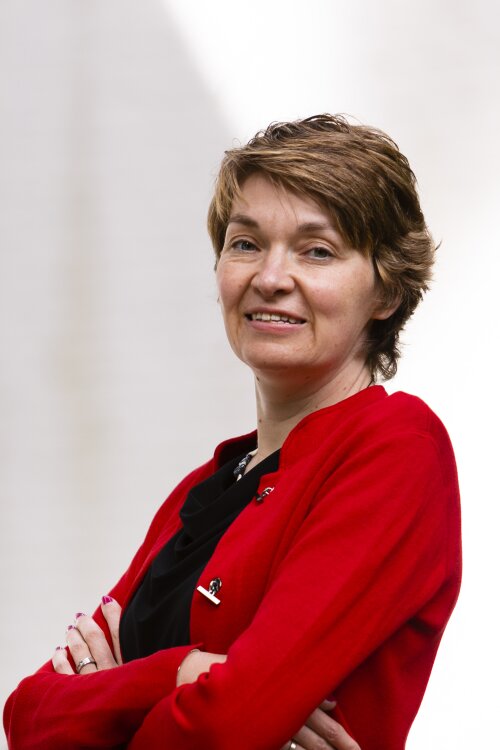Biosketch
Biosketch.Prof. dr. Karolien De Wael obtained her Ph.D in Chemistry at UGent in 2005 as national science foundation (FWO) fellow on the topic “Electrochemical study of a gold electrode modified by the immobilization of transition metal ion phthalocyanines and porphyrins for catalytic applications”. K. De Wael started as tenure track research professor (analytical chemistry) at UAntwerp in 2011 and appointed as full professor in 2018. Currently, she is performing fundamental, methodological and application-oriented research involving a wide range of analytical techniques. In 2021, she became chairwoman of the Bioscience Engineering Department. Link to publication list.
Coordination of the EU RIA BorderSens project. Currently she coordinates an EU consortium representing 16 partners from 8 EU member states including 4 universities, 2 companies and 10 Border Authorities, police forces and national forensic institutes. BorderSens aims at developing key enabling technologies to be used at the borders by custom control authorities and police forces to quickly and accurately detect illicit drugs and precursors entering the EU countries. Check the intro video!
Valorization activities. From 2016, A-PECS developed an innovative, electrochemically based sensor platform for drug screening. The technology is now adapted and translated into one that can be applied on site. With the start of a VLAIO innovation mandate under my academic supervision, we are currently in the phase of entering the market.
K. De Wael is main organizer of the SMOBE meetings in Antwerp and she organized the BES2022 symposium in Antwerp in 2022.
Responsible research and innovation as important driver in A-PECS research activities. Today the demand for ultra-sensitive and selective (on-site/in process) detection systems resounds from the health, food and environmental sector. If we sum up the criteria our sensors must meet today, following literature, our sensors must be a) robust, b) applicable on-site, c) provide a very fast, d) sensitive and e) selective read-out. Electrochemistry and bio-electrochemistry are the techniques to actually fulfill all those criteria. However, the question is whether it is needed to fulfill all those criteria. The answer is no. We need to listen to society and industry in order to identify which criteria must be fulfilled and which are the nice ones to have. A strategic vision of K. De Wael aims at a portfolio of sensor technologies (fulfilling relevant criteria) that can be applied in different markets/sectors embracing the idea of responsible research and innovation.
